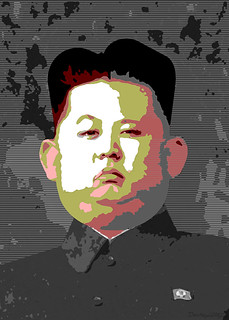Awful as the story of the abrupt downfall and execution of the
uncle of North Korea's new leader, Kim Jong Un, may be, let's hope
it doesn't erase the memory of the Merrill Newman episode.
Newman, you may recall, is the 85 year old Korean War veteran
from Palo Alto, California recently detained for over a month by
the North Korean government. After securing his release by
reading a government-authored statement detailing his crimes and
errors, he came home and told us what he really thought. He
says he's "come to the conclusion that I just didn't understand
that, for the North Korean regime, the Korean War isn't over."
And now he knows that "the North Koreans still feel much more
anger about the war than I realized. With the benefit of hindsight
I should have been more sensitive to that."
Newman, it seems, had assisted a South Korean guerilla
organization called Kuwol which, in the view of Korean War scholar
Bruce Cumings, was "possibly the most hated group of people in the
North, except for out-and-out spies and traitors from their own
side." Now, if you are outraged that the North Koreans would
arrest an octogenarian tourist, well okay. At the same time,
it would seem that common sense, if nothing else, would demand that
someone with Newman's past at least know something about the
current situation where he was going and, better still, understand
what he had been a part of sixty years ago.
For one thing, Merrill's first statement is literally true:
Although an armistice agreement ended fighting on July 27, 1953, a
peace treaty between North and South Korea has never been signed
and the countries formally remain in a state of war. More
important than this technicality, however, is the "anger about the
war" that so surprised Newman -- and the reasons for it.
The US provided nearly ninety percent of the 341,000 member
United Nations force that entered the Korean War on the side of the
South Korean government. A Soviet veto that might have been
expected to nix such an operation did not occur. The Soviet
Union was boycotting the UN to protest the organization's awarding
China's seat to Chiang Kai-shek's Nationalist government-in-exile
rather than Mao Tse Tung's Communist government that actually
controlled the country. To the extent that the Korean War is
mentioned at all in the US today, it is usually in the context of
the lack of attention given those who served in the military there,
particularly in comparison with that lavished on the "Greatest
Generation" of World War II veterans.
The war's impact upon North Korea was far different, as Newman
apparently only recently learned. The U.S. dropped 635,000
tons of bombs and 35,000 tons of napalm on Korea -- more than used
against Japan in the entire Pacific theater in the Second World
War. According to Cumings, chair of the history department of
the University of Chicago, "we carpet-bombed the north for three
years with next to no concern for civilian casualties," apparently
emboldened by the notion that "they are savages, so that gives us
the right to shower napalm on innocents." Air Force General
Curtis LeMay claimed, "we burned down every town in North Korea."
Damage to urban areas surpassed that of Germany and Japan in
the prior decade. The North claimed only two modern
structures survived in Pyongyang, its capital. Targets
included irrigation dams on the Yalu River, aimed at causing
starvation among the civilian population. Deaths in the
North may have run as high as two million, a casualty percentage
rivaling that of the Soviet Union in the Second World War.
Cumings has written of the American view that "Korea is just
one among several wars best forgotten." And in that effort we
may say our country has been largely successful. But as
Merrill Newman learned under unpleasant circumstances, our national
compulsion toward amnesia is not shared by those on the other end
of these "best forgotten" wars.
For a rough measure of the war's impact on North Korea we
might perhaps multiply 9/11 by five hundred. So, frightening
as North Korea's current leadership may be to us, the reality of
what our country did to them -- and what it could do again -- is
probably far more frightening to North Koreans. If the
Merrill Newman incident should give even a few Americans a glimpse
of how they see us -- well, that wouldn't be the worst thing.
Tom Gallagher was a UN Election Officer in East Timor and an Election and Voter Registration Supervisor in Bosnia-Herzegovina.







